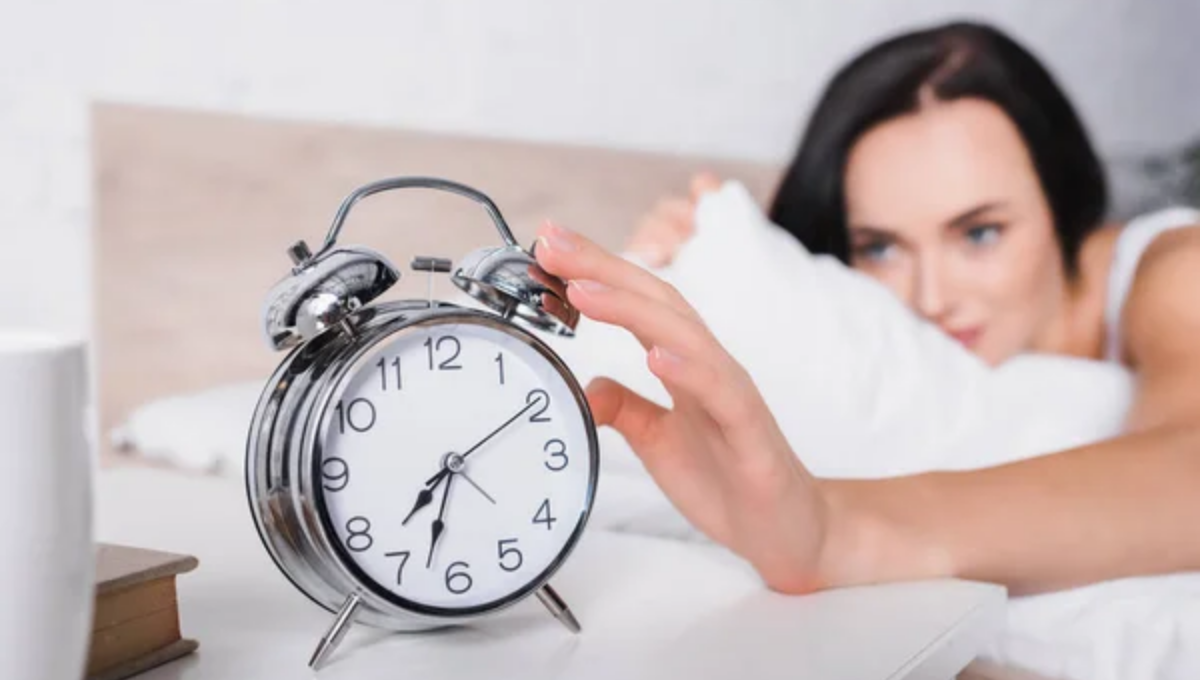A good bedtime routine can help you fall asleep faster and sleep more soundly. Here are the Top 5 ways to build a better bed time routine:
1. Establish a consistent sleep schedule
The first step to building a better bedtime routine is setting a consistent bedtime. Your body’s internal clock, also known as the circadian rhythm, thrives on regularity. Going to bed and waking up at the same time every day helps regulate your sleep patterns. Make a conscious effort to stick to your sleep schedule, even on weekends, to improve sleep quality.
What research says about Consistent Sleep time:
A number of studies have shown that consistent sleep time is important for good health. For example, a study found that people who had inconsistent sleep times were more likely to be overweight or obese, have high blood pressure, and have high cholesterol. They were also more likely to experience depression and anxiety.
Another study, published in the journal PLOS One, found that people who had inconsistent sleep times were more likely to have a shorter lifespan.
Consistent sleep time is important for a number of reasons. First, it helps to regulate the body’s circadian rhythm, which is the natural sleep-wake cycle. The circadian rhythm is influenced by light and darkness, and it helps to control a number of bodily functions, including sleep, body temperature, and hormone production.
Second, consistent sleep time helps to ensure that the body gets enough rest. When we don’t get enough sleep, we are more likely to experience fatigue, difficulty concentrating, and mood swings. We are also more likely to get sick.
2. Create a relaxing environment
The best way to create a relaxing environment for bedtime is to create a space that is dark, quiet, and cool. This will help to promote the production of melatonin, a hormone that regulates sleep. To do that successfully:
Here are some specific tips:
- Make sure your bedroom is dark. Darkness helps to promote the production of melatonin. If your bedroom is too bright, try using blackout curtains or a sleep mask.
- Reduce noise. Noise can disrupt sleep, so try to make your bedroom as quiet as possible. You may want to use a white noise machine or earplugs to block out noise.
- Keep your bedroom cool. A cool temperature is ideal for sleep. Aim for a temperature between 60 and 67 degrees Fahrenheit.
- Use aromatherapy. Some scents, such as lavender and vanilla, have been shown to promote relaxation and sleep. Try using an essential oil diffuser or aromatherapy candles in your bedroom.
- Create a comfortable bed. Your bed should be a place where you feel comfortable and relaxed. Make sure you have a good mattress and pillows. You may also want to add a weighted blanket or other bedding that you find comforting.
RELATED: Is It Okay to Work Out at Night or Does It Affect Your Sleep?
3. Wind down before bed
Develop a bedtime routine that includes relaxing activities. This could involve reading a book, taking a warm bath, listening to calming music practicing deep breathing exercises, or meditating.
In addition, avoid watching TV or using electronic devices in the hour before bed. The blue light emitted from these devices can interfere with sleep.
It is important to find a wind-down routine that works for you and to stick to it as much as possible. This will help you to fall asleep faster and sleep more soundly.
Here is an example of a wind-down routine:
- 7:00 PM: Turn off all electronic devices and start to wind down.
- 7:30 PM: Take a warm bath or shower.
- 8:00 PM: Read a book or listen to calming music.
- 8:30 PM: Meditate or do yoga.
- 9:00 PM: Go to bed.
4. Mind your evening meals
Avoid heavy, spicy, or large meals close to bedtime. These can lead to discomfort and indigestion, making it challenging to fall asleep. Opt for a light, healthy snack if you’re hungry before bedtime.
5. Avoid caffeine and alcohol before bed
It is important to avoid caffeine and alcohol before bed because they can interfere with sleep. Caffeine is a stimulant that can make it difficult to fall asleep and can also disrupt sleep throughout the night. Alcohol is a depressant that can make you feel sleepy at first, but it can also disrupt sleep later in the night.
Here is how caffeine and alcohol can interfere with sleep:
- Caffeine can block the effects of adenosine, a neurotransmitter that makes you feel sleepy.
- Alcohol can disrupt the sleep cycle, causing you to wake up more often during the night.
- Alcohol can also reduce the amount of deep sleep you get, which is the most restorative stage of sleep.
If you are having trouble sleeping, it is best to avoid caffeine and alcohol in the hours leading up to bedtime. You may also want to avoid caffeine and alcohol altogether if you have insomnia or other sleep problems.
Here are some tips for avoiding caffeine and alcohol before bed:
- Avoid caffeine in the afternoon and evening.
- Avoid alcohol in the hours leading up to bedtime.
- If you do drink alcohol, choose light drinks and drink in moderation.
- If you are having trouble sleeping, talk to your doctor. They may be able to help you identify the underlying cause of your sleep problems and recommend treatment options.


















